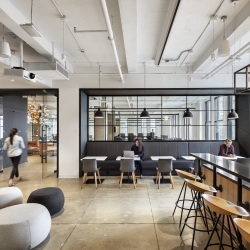November 9, 2022
Workplace wellbeing remains a neglected issue for many firms
 Two in five businesses have either cut or maintained workplace wellbeing budgets despite growing pressures on their staff, according to a new report. Faced with stressors such as the cost-of-living crisis, political uncertainty, and the ‘return to work’ post-Covid, just 16 percent of directors and risk practitioners said their wellbeing budgets had seen a significant increase. Around 40 percent of businesses had increased their budgets slightly to tackle issues such as mental, physical, financial health, organisational vision, values, culture and working standards, according to the poll by Deloitte, the International Institute of Risk and Safety Management (IIRSM) and the Institute of Directors (IoD). More →
Two in five businesses have either cut or maintained workplace wellbeing budgets despite growing pressures on their staff, according to a new report. Faced with stressors such as the cost-of-living crisis, political uncertainty, and the ‘return to work’ post-Covid, just 16 percent of directors and risk practitioners said their wellbeing budgets had seen a significant increase. Around 40 percent of businesses had increased their budgets slightly to tackle issues such as mental, physical, financial health, organisational vision, values, culture and working standards, according to the poll by Deloitte, the International Institute of Risk and Safety Management (IIRSM) and the Institute of Directors (IoD). More →



































November 3, 2022
Are digital skills the key to a happier, more productive workforce?
by Katy Liddell • Comment, Technology, Workplace